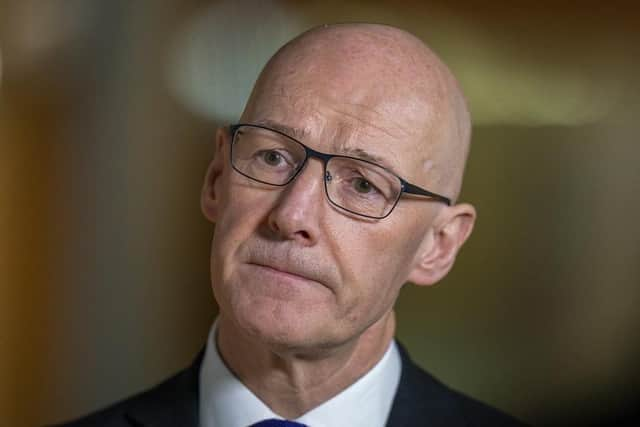Emergency budget review analysis: Brace yourself, this is just the start of the difficult decisions
This article contains affiliate links. We may earn a small commission on items purchased through this article, but that does not affect our editorial judgement.
But 2022 is no ordinary year, and these are no ordinary circumstances. John Swinney is in the position of wanting to fund cost-of-living policies while facing intense inflationary pressures, all with the backdrop of political chaos and economic incompetence from a 44-day administration at Westminster.
For that he is awarded a degree of credit from his opposite numbers who, while criticising certain choices, were reserved around where blame ultimately lays. The issue for Mr Swinney, however, is this goodwill has a shelf life. It won’t last beyond December 14.
Advertisement
Hide AdAdvertisement
Hide AdThe emergency budget review is, in reality, a prologue to the difficult decisions sitting around the corner. Like a giant, flashing, warning light, these cuts are the part of the horror movie where ordinary people would turn around, go home and have a mug of hot chocolate. Unfortunately, the plot demands Mr Swinney continues.


On December 15, the day of the budget, Scots can expect the full horror of the fiscal reality facing the Scottish Exchequer. The key moment of Wednesday’s statement was not the announcement of £615 million in additional cuts, but was instead when Labour’s Daniel Johnson questioned the finance secretary on earmarked reserves for the next financial year. They have disappeared and are yet to be rediscovered, Mr Swinney said. That means more cuts and the prospect of flat-cash, public service-killing settlements could be replaced by real and cash-terms cuts.
If that is the reality, then expect to hear more pleas for additional funding from cash-strapped councils facing budget gaps in the tens of millions, from the culture sector struggling to keep museums open, and the justice system only now beginning to recover from the pandemic.
It could worsen still for the SNP/Green Government. Should the Autumn Statement from Jeremy Hunt on November 17 outline cuts to devolved areas, yet more savings will have to be found down the back of the sofa.
There is a serious possibility the Scottish Government is bounced into tax rises to just maintain existing spending levels, rather than increasing funding to stretched and under-pressure public services. Never mind difficult, these are close to impossible political choices.
Want to hear more from The Scotsman's politics team? Check out the latest episode of our political podcast, The Steamie.
It's available wherever you get your podcasts, including Apple Podcasts and Spotify.
Comments
Want to join the conversation? Please or to comment on this article.
